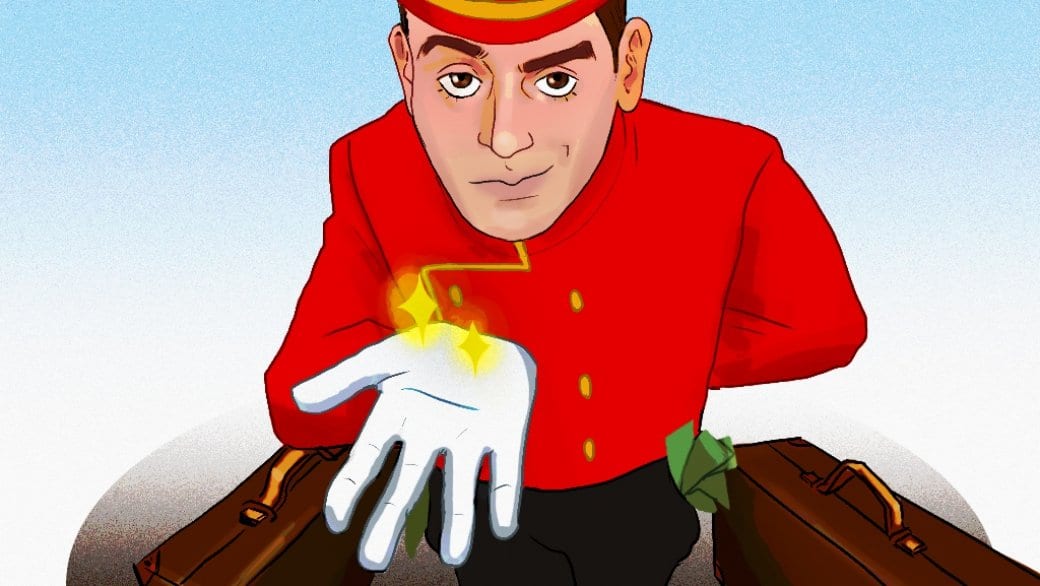In August 1917, 15-year-old Arnold chatted up Thomas C outside of the Star Burlesque on Temperance Street, near the corner of Adelaide and Yonge, in downtown Toronto. Thomas was a single 26-year-old — a “sausage-casing expert,” hilariously enough. Arnold remarked on the nice weather; Thomas asked if the adolescent would come to His Majesty’s Theatre, a nearby establishment. “I went with him,” Arnold said, documented in historian Steven Maynard’s essay “‘Horrible Temptations’: Sex, Men, and Working-Class Male Youth in Urban Ontario.”
“He got two seats at the wall,” Arnold said. “I was sitting next to him. He drew his hand up my leg.” After His Majesty’s, the two continued on together to Bowles Lunch, a cheap, all-night diner chain popular with Toronto’s homeless children and newsboys. After Bowles, they attended another show at the Hippodrome — where Toronto’s old City Hall now sits — before Arnold said he headed home.
Arnold said he sought out Thomas the next day, and the day after that. At Thomas’s home at Gerrard and Jarvis, Thomas pulled the boy’s pants down and they masturbated each other to “discharge,” as Arnold described it. This repeated eight times before the end of the month, after which they traveled out of town to Western Canada for September. After returning, their relationship continued until the end of the year.
In modern day Toronto, Bay Street is synonymous with business, and Yonge Street with shopping and entertainment — a tradition that facilitated the relationship between Arnold and Thomas. At the turn of the 20th century, Toronto’s street boys knew there were quite a few ways to make a bit of pocket money.
Rick Bébout describes the trajectory of the relatively young commerce town in his essay “Mad For ‘The Show’: Working Girls, Street Boys, & Moral Salvation in Toronto the Good.” The urban centre’s population was 96,000 in 1881, with almost a thousand manufacturing establishments. “By 1911, half as many factories generated more than three times the goods . . .” he writes. “That year, the City of Toronto was home to 376,538 souls — nearly four [times] more (if, by annexations, on twice as much land) than it had housed just 30 years before.”
Smack dab in the middle of this, “social purity” writer and journalist CS Clark published Of Toronto the Good in 1898, outlining his personal explorations of the various social ills that plagued the city — street walkers and brothels, drunks and the poor, pickpockets, pawnbrokers, gamblers, etc. One section focused on “street boys.”
While there was a movement against child labour, it was still prevalent throughout the Western world well into the 20th century. Hawking newspapers was an easy way for young boys and adolescents to make a little money to go see a cheap theatre show, or buy some food or candy. Boys in the downtown core could mostly be found selling bundles of the evening dailies at busy intersections. “The great stand for the boys is on the corner of Yonge and King Streets, and at the railway stations, where in the mornings you hear the cry ‘Globe, Mail & Empire, World,’” Clark writes, “while in the evening, ‘Globe, Mail & Empire, News, Telegram and Star’ is rattled off as their tongues can utter them.”
These boys were, on the whole, not very well off. “Some of them have no shoes, no coats, and even their shirts are merely apologies for such, and yet they are rarely, if ever, sick . . .” he writes. “Some of the boys live at home, but the majority are wanderers in the streets, selling papers generally, and sometimes forced to beg. In the summer time, they can live out all night, but in the winter they are obliged to patronize the cheap lodging houses, the newsboys’ home, or St Nicholas home.”
Boys worked in factories or construction, sometimes alongside their fathers, in retail at Eaton’s and Simpsons, in shipping rooms, as bookkeepers, cleaners or boiler attendants. As Bébout describes, “The luckiest could be found at hotels, as bellboys — turned out spiff and shiny clean.” These boys, as it turned out, were rather resourceful at making a little on the side, as Clark details:
If saintly Canadians run away with the idea that there are no sinners of Oscar Wilde’s type in Canada, my regard for truth impels me to undeceive them. Consult some of the bell boys of the large hotels in Canada’s leading cities, as I did, and find out what they can tell from their own experiences. A youth of eighteen once informed me that he had blackmailed one of Canada’s esteemed judiciary out of a modest sum of money, by catching him in the act of indecently assaulting one of the bell boys connected with a hotel in that city. The judge, with unblushing effrontery had arranged with the boy to meet him outside that night, and the boy had told the blackmailer when and where they were to meet. His honour was highly indignant and threatened every possible punishment, but it would not do. He had to pay the money. This is one case only, but they are countless. Some of Canada’s leading citizens could be implicated just as Oscar Wilde was implicated, if some of these bell boys chose to make public what they knew.
Many of these kinds of men were well known to the boys of Toronto for making “indecent proposals.”
Whether through intimate “friendships,” blackmail or plain prostitution — Maynard notes one 17-year-old boy arrested in a Yonge Street brothel who was “a self-confessed pervert” — boys and teens took pleasures where they could. This often meant tracking down a generous man to fund their entertainments, like how Arnold found Thomas.
When a morality inspector detained them and Arnold was made to give a report on Thomas to the police, he was asked why he’d travel out of town with Thomas. “He paid my way to the West and fed and clothed me all this time,” Arnold said in his report. So if there wasn’t romance, there was at least an economic choice. Supply and demand.
History Boys appears on Daily Xtra on the first and third Tuesday of every month. You can also follow them on Facebook.


 Why you can trust Xtra
Why you can trust Xtra


